What is a Repetitive Stress Injury (RSI)?
A Repetitive Strain Injury is a general term referring to conditions caused by:
* Repetitive 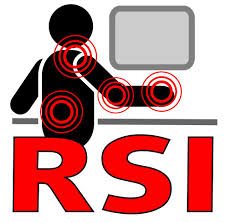 tasks
tasks
* Sustained vibrations
* Forceful exertions
* Chronic mechanical compression
* Prolonged awkward positions
The end result is an overuse of body parts that leads to soft tissue injury of muscles, nerves, ligaments, fascia, and/or tendons.
Unlike a strain or a sprain which results from an acute trauma, RSI’s develop slowly over time and are also knows as:
* Cumulative Trauma Disorders (CTD)
* Repetitive Motion Injuries (RMI)
* Occupational Overuse Syndromes (OOS)
* Work-Related Musculoskeletal Disorders (WRMD)
In fact, RSI’s account for over 67% of all occupational injuries and can involve many types of occupations, sports, and physical activities. Unfortunately, these percentages continue to grown.
How Does an RSI Develop?
 Repetitive injury to any of the tissues mentioned results in small micro-tears and subsequent inflammation of the area. The body responds by laying down scar tissue that then inhibits movement of those tissues, protecting them from further damage. If this inhibition of movement is accompanied by continued repetitive action, this process is repeated and more and more scar tissue is created.
Repetitive injury to any of the tissues mentioned results in small micro-tears and subsequent inflammation of the area. The body responds by laying down scar tissue that then inhibits movement of those tissues, protecting them from further damage. If this inhibition of movement is accompanied by continued repetitive action, this process is repeated and more and more scar tissue is created.
The scar tissue, or “adhesions” can eventually:
* Inhibit nerve function
* Reduce lymphatic drainage
* Provoke a decrease in blood flow and oxygen delivery to tissues
* Cause a variety of other circulatory, neurological, and/or musculoskeletal problems.
Who is at Risk To Suffer From an RSI?
* Golfers
* Runners / Weight Lifters
* Athletes in general
* Computer Operators
* Computer Programmers
* Assembly Line Workers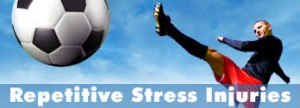
* Cashiers
* Hairdressers
* Dentists and Dental Technicians
* Construction Workers
* Hospital Workers
* Musicians
* Nurses
* Postal Workers
* Vehicle Operators
* Mechanics
* Individuals whose work requires repetitive motions
Examples of RSI Conditions:
* Chronic Low Back or Pelvic Pain
* Edema / Tendinitis / Tenosynovitis
* Rotator Cuff Syndrome
* Carpal Tunnel Syndrome
* Cubital Tunnel Syndrome
* Thoracic Outlet Syndrome
* Headaches secondary to muscular tension
* Golfer’s Elbow (medial epicondylitis)
* Tennis Elbow (lateral epicondylitis)
* Poor Posture
* Sports Injuries involving any joint
Treatment Options for RSI’s?
Generally RSI’s are treated with:
* A course of anti-inflammatory painkillers
* Cold or hot packs
* Elastic supports
* Firm splints.
* In more severe cases, steroid injections are administered
Our Approach:
While traditional approaches may be needed for pain management, our approach includes:
* SPECIFIC SOFT-TISSUE THERAPY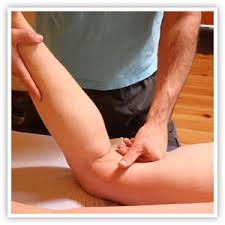
Our individualized soft-tissue therapies are aimed at restoring normal motion in areas where scar tissue/adhesions have developed and are restricting motion. This is important because although traditional approaches help with pain, they do not in any way alter the actual restrictions within the tissue itself.
In longstanding and/or severe cases, scar tissue may not be fully resolved. Nevertheless, our soft-tissue therapies can improve texture and functionality, resulting in less pain and better movement nevertheless.
* POSTURE CORRECTION
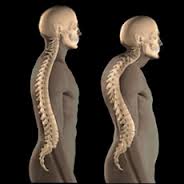 Abnormal postures, such as an excessive forward lean, upper back “humps”, or reversed cervical curves further irritate local tissues that are already traumatized from repetitive stress. In such a case, the posture MUST be corrected as best possible to minimize these effects.
Abnormal postures, such as an excessive forward lean, upper back “humps”, or reversed cervical curves further irritate local tissues that are already traumatized from repetitive stress. In such a case, the posture MUST be corrected as best possible to minimize these effects.
Our doctor and staff have the expertise and are well-equipped with traction equipment to handle most postural issues.
Whether you are a mechanic working on cars in awkward positions or a computer keyboardist with an incorrectly positioned monitor, our job entails figuring out the best set up for your particular condition so as to avoid further aggravation.
* CORRECTIVE EXERCISE
Even after removing scar tissue/adhesions, correcting abnormal posture, and improving your work environment, your soft tissues need to be rehabbed to become strong and have enough muscular endurance to sustain your ongoing work activities. We will walk you through 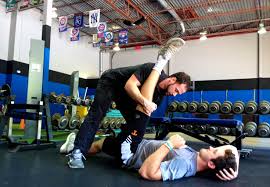 systematic protocols to help you achieve this efficiently.
systematic protocols to help you achieve this efficiently.
If you feel you are suffering from an Repetitive Stress Injury, call us.



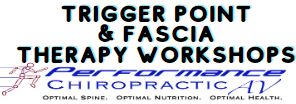

FOLLOW US!